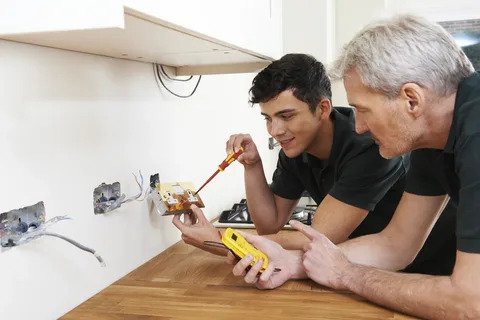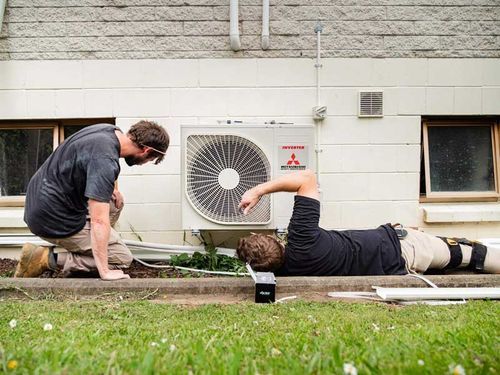
Energy-Saving Tips: Expert Advice from Residential Electricians
In today’s world, where energy consumption is at an all-time high, it is crucial to understand the importance of energy conservation in our daily lives. Not only does it help preserve our environment, but it also allows us to save money on utility bills. In this article, we will delve into various strategies from expert residential electrician in Auckland to optimise energy efficiency in our homes, ranging from lighting choices to smart energy management systems.
So, let’s get started and learn how to make a positive impact on both our wallets and the environment!

Understanding Energy Efficiency
To begin our energy-saving journey, it is essential to understand what energy efficiency means and how it benefits us. Energy efficiency refers to the utilisation of less energy to perform the same task, resulting in reduced energy consumption without compromising on the output. The benefits of energy efficiency are two-fold – it helps to lower our energy bills and reduces greenhouse gas emissions. By adopting energy-saving practices, we can contribute to a more sustainable future for generations to come.
Conduct an Energy Audit:
Before diving into specific energy-saving strategies, it is essential to conduct an energy audit of your home. This process allows you to identify areas where energy is being wasted and prioritise your efforts. Start by examining your utility bills to understand your energy usage patterns. Next, walk through your home and inspect various aspects, including insulation, windows, appliances, and lighting.
During your energy audit, pay attention to common areas where energy is often wasted. For instance, check for air leaks around windows and doors, look for inefficient lighting fixtures, and inspect the insulation in your attic. By conducting an energy audit, you will gain a comprehensive understanding of your energy consumption and where improvements can be made.
Upgrade to LED Lighting:
One of the most effective ways to save energy and reduce your electricity bills is by upgrading to LED lighting. LED lights are more energy-efficient than traditional incandescent bulbs, they last longer, and they produce less heat. By replacing your old bulbs with LED lights, you can save up to 75% on lighting costs.
When choosing LED bulbs, look for reputable brands or specific models that offer high energy efficiency and long lifespan. Additionally, consider the colour temperature and brightness level that suits your needs. Installing LED lights is a straightforward process, and you can easily replace the bulbs yourself. Remember to turn off the power before making any changes and dispose of old bulbs responsibly.
Optimise Your HVAC System:
Heating, ventilation, and air conditioning (HVAC) systems are major contributors to your energy consumption. Therefore, optimising your HVAC system is crucial for energy savings. Start with regular maintenance, including cleaning or replacing filters as needed. A clean filter ensures maximum airflow and increases the efficiency of your system.
Consider upgrading to a programmable thermostat, which allows you to set different temperatures for different times of the day. This way, you can reduce energy usage when you are not at home or during the night when you are sleeping. Programmable thermostats offer convenience and save you money in the long run.
If you are looking for alternative heating or cooling options, consider geothermal systems, heat pumps, or solar-powered options. These technologies are becoming increasingly popular due to their energy efficiency and environmental benefits. While they may require a larger upfront investment, they can result in significant long-term savings.
Seal Air Leaks:
Air leaks in your home can lead to substantial energy waste. Common sources of air leaks include gaps around windows and doors, electrical outlets, and plumbing penetrations. To identify these leaks, you can conduct a simple test using an incense stick or thermal imaging camera.
Once you have identified the air leaks, it’s time to seal them effectively. Use weatherstripping to seal gaps around windows and doors and caulk or foam sealant for smaller gaps around electrical outlets or plumbing penetrations. Additionally, consider adding insulation to areas such as the attic or crawl spaces to prevent air leakage.
Use Power Strips:
Have you heard of vampire power? It refers to the energy consumed by electronics even when they are in standby or idle mode. Surprisingly, vampire power can account for up to 10% of your energy bill. To combat this, utilise power strips as a solution for managing standby power consumption.
Plug your electronic devices into a power strip and turn off the strip when not in use. This simple action cuts off the power supply to all connected devices, eliminating vampire power. Additionally, invest in power strips with built-in timers or smart features that automatically turn off the power after a specified period of inactivity.
Insulate Your Home:
Proper insulation is essential for reducing energy loss and maintaining a comfortable indoor environment. Insulation helps keep the heat inside during winter and prevents it from entering during summer. By insulating your home, you can reduce the load on your heating and cooling systems, resulting in energy savings.
Different areas of your home may require different types of insulation. For example, in the attic, consider using blown-in or batt insulation. In walls, you can opt for spray foam insulation or cellulose insulation. While some insulation projects can be tackled as DIY projects, others may require professional assistance from the best residential electrician Auckland-wide. Evaluate your skills and the complexity of the project before deciding.
Harness Natural Light:
Maximising natural light in your home not only reduces your reliance on artificial lighting sources but also provides a pleasant and inviting atmosphere. Start by utilising window treatments that allow ample sunlight to enter while maintaining privacy. Consider using sheer curtains or blinds that can be easily adjusted.
Strategically placing mirrors across from windows can also help reflect and amplify natural light. Additionally, if you are looking for a more significant change, consider installing skylights or solar tubes. These additions bring in additional natural light, even in areas away from windows. They can transform any space and reduce the need for artificial lighting during daylight hours.
Unplug Unused Electronics:
Electronics and appliances continue to draw power even when they are not in use. Unplugging these devices when not in use is a simple and effective way to reduce energy waste. Start by creating a routine of unplugging devices that are not regularly used, such as phone chargers, kitchen appliances, and gaming consoles.
If you find it inconvenient to unplug devices individually, consider using smart power strips. These power strips can automatically cut off power to devices in standby mode, eliminating the need for manual unplugging. By making a habit of unplugging unused electronics, you can significantly reduce your energy consumption.
Consider Energy-Efficient Appliances:
When it comes to saving energy, investing in energy-efficient appliances is a wise choice. Energy-efficient appliances are designed to consume less electricity while providing the same level of functionality.
When shopping for appliances, consider the specific needs of your household. For example, if you are in the market for a new refrigerator, look for models with features like adjustable temperature settings, efficient compressors, and well-insulated compartments. By carefully selecting energy-efficient appliances, you can reduce your electricity usage and save money in the long run.
Educate Yourself and Others:
The journey towards energy conservation doesn’t stop with implementing these energy-saving tips. Ongoing education is crucial for staying up-to-date with the latest advancements in energy-efficient technologies and practices. By educating yourself, you can continue to find new ways to reduce your energy consumption.
There are numerous resources available to expand your knowledge of energy-saving practices. Government websites, trusted organisations, and even local residential electrician Auckland can provide valuable insights. Share your knowledge with friends, family, and your community to inspire others to make positive changes as well.
Conclusion:
In conclusion, saving energy and reducing your carbon footprint doesn’t have to be complicated or expensive. By implementing the expert advice provided by residential electrician Auckland, you can make significant strides in reducing your energy consumption.
Remember, every small change counts. By implementing these energy-saving tips, you not only save money on your energy bills but also contribute to a more sustainable future. Start making a difference today and inspire others to join you on this energy-saving journey. Together, we can create a greener and more efficient world for generations to come.


